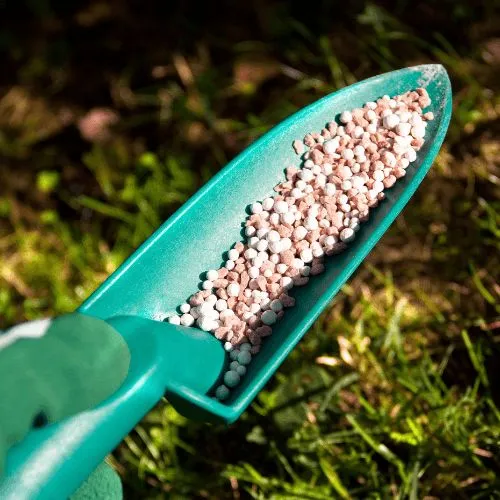Picture yourself strolling through your organic farm, where your tomatoes are ripe with flavor, your potatoes are firm, and your flowers are almost radiant. Sounds like a fantasy, right? Well, it's not—just sprinkle a little NPK 00 00 50, also called sulphate of potash, over your fields, and magic will ensue! This dynamo fertilizer is an organic farmer's secret weapon, providing potassium in a manner that's gentle on the earth and your plants. Full of offbeat advice, down-to-earth know-how, and green vibes, this blog explores how NPK 00 00 50 as sulphate of potash can turn your organic farm into a productive paradise. Let's get started and discover the magic of NPK 00 00 50!
What Is NPK 00 00 50, Anyway?
Let's demystify. NPK 00 00 50 is a fertilizer with a precise nutrient balance: zero nitrogen (N), zero phosphorus (P), and 50% potassium (K). In organic gardening, it's usually obtained as sulphate of potash, a natural mineral that's either mined or comes from plant-based sources, making it ideal for gardeners who avoid synthetic chemicals. NPK 00 00 50 is a potassium-rich smoothie for your plants—pure, concentrated, and ready to fuel growth without tampering with Mother Nature.Why does NPK 00 00 50 shine in organic farming? Potassium is the unsung hero of crop health, helping plants regulate water, strengthen roots, and produce tastier fruits. Unlike balanced fertilizers, NPK 00 00 50 zeroes in on potassium, giving your farm exactly what it needs when deficiencies strike. I’ve seen wilted fields perk up with NPK 00 00 50—it’s like giving your crops a pep talk that actually works!
Why Potassium is Important in Organic Agriculture
Potassium is the foundation of plant strength, and NPK 00 00 50 brings it by the bucketload. In organic agriculture, where chemical Band-Aids are not an option, NPK 00 00 50 as sulphate of potash takes the lead to keep plants strong. Here's why it's a game-changer:- Water Wizard: NPK 00 00 50 enables plants to handle water like experts, opening and closing minuscule leaf pores (stomata) to avoid wilting in dry times. My sun-dried peppers recovered after a treatment with NPK 00 00 50—what a water hero!
- Root Rockstar: Healthy roots equal healthy plants. NPK 00 00 50 promotes root development, enabling crops to dig deep and draw up nutrients optimally.
- Flavor Factory: Ever taken a bite out of a tasteless tomato? NPK 00 00 50 boosts sugar and acid levels from potassium, giving fruits and vegetables more flavor.
NPK 00 00 50: The Sulphate of Potash Advantage
Not every potassium fertilizer is equal to, and NPK 00 00 50 as sulphate of potash is the organic grower's MVP. While muriate of potash contains chloride that can be toxic to sensitive crops, sulphate of potash delivers sulfur in addition to potassium—two nutrients plants just love.- Soil-Friendly: NPK 00 00 50 in the form of sulphate of potash is not harsh on soil microbes, allowing your organic community to hum along. It's like a smoothie that does your gut good, but for dirt!
- Chloride-Free: Chloride can stress out crops such as strawberries or grapes, but NPK 00 00 50 avoids it, so it's safe for sensitive plants.
- Sulfur Bonus: The sulfur in NPK 00 00 50 assists in protein formation and increases disease resistance, providing your crops with an additional layer of protection.
When to Apply NPK 00 00 50 in Organic Farming
Timing is crucial when using NPK 00 00 50. Organic farmers must understand when their crops are crying out for potassium—and believe me, plants aren't bashful about sending messages. Check for yellow leaf margins, soft stems, or tiny, unimpressive fruits. These are SOS messages that NPK 00 00 50 can respond to.- Fruiting Stage: Vegetables such as tomatoes, peppers, and melons drink potassium while developing fruits. Use NPK 00 00 50 at flowering to power those succulent harvests.
- Root Crops: Potatoes and carrots adore NPK 00 00 50 to fatten up their roots and tubers. Use it mid-season for show-stopping spuds.
- Stress Seasons: Drought or excessive rain can trap potassium out of reach of roots. NPK 00 00 50 comes in to maintain plant strength.
How to Apply NPK 00 00 50 Like a Pro
Applying NPK 00 00 50 in organic farming is as simple as pie—if pie could grow healthier crops! Here's the way to do it:Soil Application: Add 1–2 pounds of NPK 00 00 50 per 100 square feet to the topsoil before seed or during plant growth. Water thoroughly to let it absorb.
- Side-Dressing: For season-long kickstarts, broadcast NPK 00 00 50 in a band around plants, 6 inches from the stems, and just rake in.
- Foliar Spray: Mix 1 tablespoon of water-soluble NPK 00 00 50 in 1 gallon of water and mist leaves in the early morning. It's a potassium energy drink for your crops!
- Test First: Check soil potassium levels with a kit to avoid overdoing it—too much NPK 00 00 50 can block other nutrients like magnesium.
NPK 00 00 50 for Specific Crops
Not sure which fruits and veggies will swoon over NPK 00 00 50? Here's a hit list of organic all-stars that love sulphate of potash:- Tomatoes: NPK 00 00 50 enhances fruit size and taste, providing you with salsa-worthy crops.
- Potatoes: Heavier tubers are what you can expect, making your mashed potatoes legendary.
- Grapes: NPK 00 00 50 increases sugar levels for sweeter wine or table grapes.
- Flowers: Roses and sunflowers become stronger stems and sunnier blooms with NPK 00 00 50.
Why NPK 00 00 50 Fits Organic Farming Like a Glove
Organic agriculture is all about balance, and NPK 00 00 50 as sulphate of potash obeys those laws. It's naturally sourced, usually from mined potassium sulfate or plant material, so it will fit within organic certifications. And it's devoid of synthetic additives that might upset your soil's mojo.
- Eco-Warrior: NPK 00 00 50 decomposes neatly, without leaving any toxic residues to hurt worms or pollinators.
- Soil Health: It feeds plants for long-term fertility without clogging nitrogen or phosphorus.
- Farmer-Friendly: It is cost-effective and a long way—more bang for your buck!
I love that NPK 00 00 50 allows me to have epic crops while maintaining a clear conscience for my farm. It's organic farming's equivalent of the guilt-free dessert.
Troubleshooting with NPK 00 00 50
Even superheroes have limits, so here's how to steer clear of hiccups with NPK 00 00 50:
- Overuse Alert: Excessive use of NPK 00 00 50 leads to potassium excess, depriving plants of calcium or magnesium. Follow the recommendations of soil tests.
- Water Well: Potassium requires water to move into roots, so water after using NPK 00 00 50.
- Balance It: Mix NPK 00 00 50 with compost or other organic materials to balance nitrogen and phosphorus.
I once missed a soil test and got a potassium bash my plants didn't RSVP to—lesson learned! Be smart with NPK 00 00 50, and your crops will appreciate it.
Real-Life Wins with NPK 00 00 50
Need proof? Here are some organic farming successes with NPK 00 00 50:
- Tomato Turnaround: My friend's spindly tomato plants erupted with fruit after a mid-season NPK 00 00 50 boost—her BLTs were legendary.
- Potato Power: My spud crop doubled with NPK 00 00 50 side-dressing—fries for days!
- Grape Glory: A local vineyard applied NPK 00 00 50 and won a regional wine award for their sweet reds.
These aren't stories—they're evidence NPK 00 00 50 as sulphate of potash is an all-around rockstar of organic agriculture.
Get Growing with NPK 00 00 50!
NPK 00 00 50 as sulphate of potash is your ticket to an organic farm that’s bursting with life. From juicier fruits to stronger roots, this potassium powerhouse delivers—all while keeping things natural, affordable, and eco-friendly. Whether you’re pampering tomatoes or beefing up potatoes, NPK 00 00 50 makes your harvests shine. So grab a bag, sprinkle some love, and watch your crops strut their stuff like never before.At Bulkagrochem, we're crazy about natural solutions such as NPK 00 00 50 to give your farm a super boost. Combine it with our organic soil boosters for crops that will drop jaws. Stop by and learn how we can make your organic farm the star of the show!
FAQs






